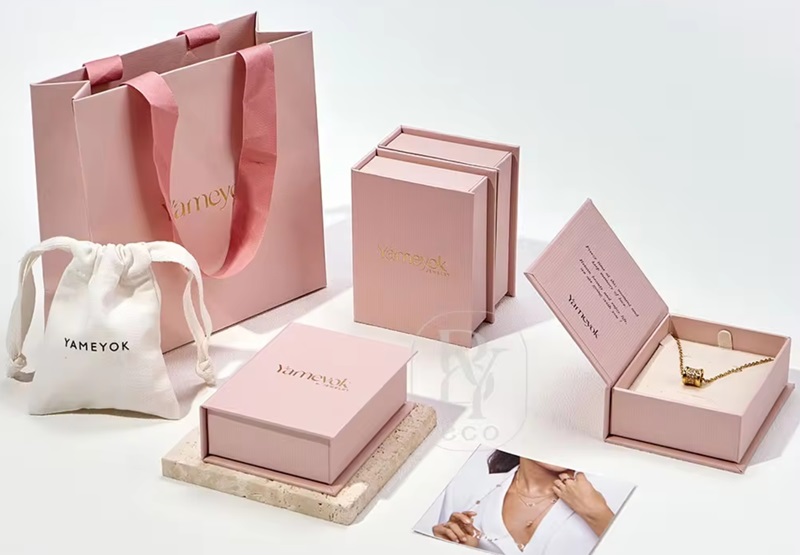You can share
- Share to Facebook
- Share to Google+
- Subscribe to our
- Share to Linkedin
- Share to Twitter

Jewelry packaging is not only a shell to protect the product, but also an important medium for brand image and value delivery. When customizing jewelry packaging, it is necessary to comprehensively consider the target market, brand image, and the value and characteristics of the jewelry itself. Next, we will explore how to enhance consumers' purchasing experience and enhance the attractiveness of jewelry through well-designed packaging.
Before designing customized jewelry packaging, you first need to have a deep understanding of the target market. This includes consumers' age, gender, cultural background, purchasing habits, and their expectations of jewelry. For example, young consumers may prefer modern and simple designs, while mature consumers may prefer classic and luxurious styles. Knowing this information can help designers create packaging that meets the needs of the target market.
Brand image is the consumer's perception and emotional connection with the brand. Customized jewelry packaging should be consistent with the brand image, whether it is color, material, or design elements. For example, if the brand image is luxurious and high-end, the packaging should use high-quality materials such as leather or silk and be decorated with gold or silver. Such packaging not only protects the jewelry but also strengthens the brand's high-end image.

The value and characteristics of jewelry are the main driving forces for consumers to buy. Customized jewelry packaging should be able to highlight the uniqueness of jewelry, whether it is its design, material, or craftsmanship. Designers can show the details of jewelry by using transparent display windows, special lighting effects, or customized linings. In addition, the design of the packaging should be coordinated with the design of the jewelry to form a unified visual experience.
The ultimate goal of customized jewelry packaging is to create a unique buying experience. This can be achieved in many ways, such as:
(1) Personalization: Provide customized packaging options, such as engraving the customer's name or special date on the packaging.
(2) Storytelling: Tell the story of jewelry through packaging design to increase emotional value.
(3) Environmental concept: Use sustainable materials to convey the brand's environmental commitment.
While aesthetics is an important consideration for customized jewelry packaging, functionality cannot be ignored. The packaging must be able to protect the jewelry from damage while also being easy to carry and store. Designers need to find a balance between beauty and practicality to ensure that the packaging is both beautiful and practical.
As the market changes and consumer demand evolves, customized jewelry packaging also needs to continue to innovate. Designers should pay attention to industry trends, such as the use of environmentally friendly materials, the integration of digital technology, etc., and incorporate them into packaging design. Innovation can not only enhance the brand image but also attract new consumer groups.
Customized jewelry packaging is a bridge of communication between jewelry brands and consumers. Through in-depth analysis of the target market, shaping the brand image, highlighting the value and characteristics of jewelry, creating a unique experience, balancing functionality and aesthetics, and continuous innovation, customized jewelry packaging can significantly enhance consumers' purchasing experience and enhance the attractiveness of jewelry.